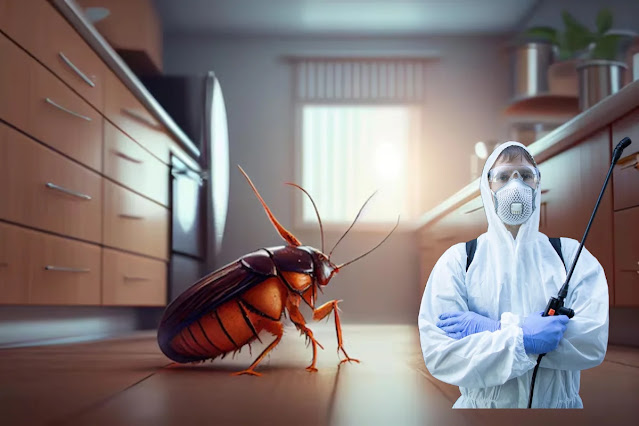Is Pest Control Safe For People?
Keeping your home, office, or any space clean and pest-free is super important for a healthy lifestyle. But a question that pops up quite often is: "Is pest control safe for people?" And honestly, it’s a fair concern—especially if you have young kids, elderly family members, pets, or someone in the house with allergies.
So, here’s the good news: when done by trained professionals using the right products and techniques, pest control is generally safe for humans. Of course, like anything, there are things to be mindful of. That’s why in this post, we’ll break down what’s safe, what to watch out for, and how you can make sure your pest control treatment protects your space without putting anyone at risk.
Understanding Pest Control Methods
There are several types of pest control methods used today, and each comes with its own safety considerations:
1. Chemical Pest Control
This involves the use of pesticides, insecticides, or rodenticides to eliminate pests. These are often sprayed, fogged, or applied as gels or powders. Some commonly used chemicals include pyrethroids, organophosphates, and neonicotinoids.
✅ Pros: Very effective and fast-acting
⚠️ Cons: Overexposure or improper application may cause respiratory irritation, skin reactions, or allergic symptoms in sensitive individuals.
Precaution: When using chemical treatments, reputable pest control companies follow strict safety guidelines like using approved chemicals, applying the right dosage, and instructing clients to vacate the premises for a short time, if needed.
2. Herbal or Eco-Friendly Pest Control
This method uses plant-based or organic ingredients like neem oil, peppermint, citronella, or diatomaceous earth to repel or eliminate pests.
✅ Pros: Non-toxic, safe for humans and pets, environmentally friendly
⚠️ Cons: Might be less effective for large-scale infestations or require repeated applications
Eco-friendly pest control is often the preferred option for households with children or those looking for chemical-free solutions.
3. Mechanical & Physical Control
These include traps, baits, ultrasonic devices, or physical barriers to stop pest entry.
✅ Pros: Completely non-chemical and safe
⚠️ Cons: Might be slower or more manual in approach
While completely safe for humans, these methods are best for mild to moderate infestations.
When Can Pest Control Be Harmful to Humans?
Pest control is generally safe when handled by professionals, there are scenarios where it can pose risks, especially when:
DIY treatments are done without proper knowledge
Overuse or misuse of chemical sprays occurs
Poor ventilation leads to buildup of toxic fumes
Instructions are not followed after treatment (e.g., not vacating the home, not cleaning surfaces as advised)
Some common short-term symptoms of exposure to strong chemicals include:
Headache or dizziness
Coughing or difficulty breathing
Nausea or skin irritation
In rare cases, long-term exposure to high levels of pesticides can pose more serious health risks, especially in enclosed or poorly ventilated areas.
Who Is Most at Risk?
Some groups may be more sensitive to pest control chemicals, including:
Infants and children (due to their developing systems and tendency to touch surfaces)
Pregnant women
Elderly people
Asthma or allergy sufferers
Pets, especially birds, cats, and small mammals
For these individuals, eco-friendly or low-toxicity options are strongly recommended, and extra precautions should be taken during and after pest control treatments.
Tips to Stay Safe During Pest Control
If you're planning pest control in Mumbai for your home or workplace, here are a few tips to keep it safe for everyone:
Hire a licensed, professional company – They’ll use approved, regulated chemicals and apply them correctly.
Discuss your concerns – If you have kids, pets, or health issues, inform the technician in advance.
Choose herbal or low-toxic options – Especially if your infestation is mild to moderate.
Follow pre- and post-treatment instructions carefully – Such as covering food, staying out during application, or cleaning certain areas after.
Ventilate your home well afterward – Open windows and doors to air out any lingering fumes.
The Bottom Line: Is Pest Control Safe?
Yes—pest control is generally safe for humans when done correctly by professionals. With advancements in pest management, modern treatments are far less toxic and more targeted than older methods. Whether you’re dealing with cockroaches, termites, ants, or rodents, you can now choose from a range of safe and effective pest control options tailored to your needs.
That said, communication and caution are key. Always ask your service provider what chemicals they’re using, what precautions to take, and how long to stay away if needed. For people in cities like Mumbai, where pests are common due to climate and dense living, choosing a trusted pest control service company in Mumbai can make all the difference. These companies have evolved to offer safer, more family-friendly solutions that suit urban living.
Final Thoughts
Your health and safety come first. While some people worry that Does pest control harms human health, the reality is that when it's done responsibly, it’s meant to protect—not harm. It becomes a crucial service that helps keep your home clean, hygienic, and comfortable. Whether you choose chemical, herbal, or physical methods, the key is staying informed and working with trusted experts.
Thinking about going chemical-free or exploring herbal pest control options in your area? Let’s talk—we’re here to help make your home pest-free, the safe and smart way.

.webp)


Comments
Post a Comment